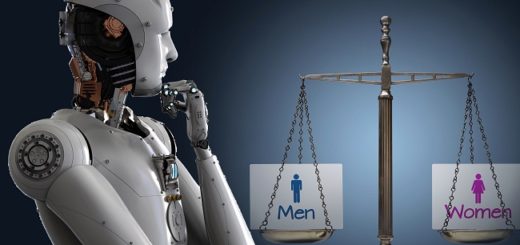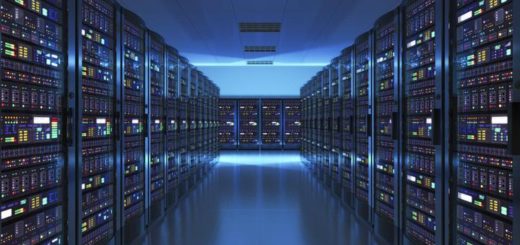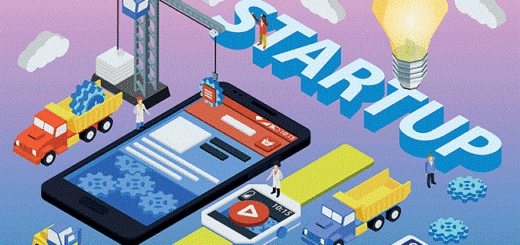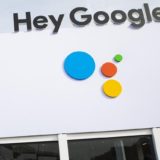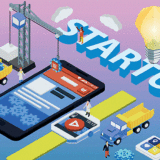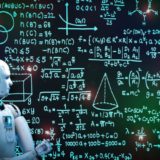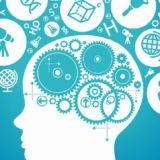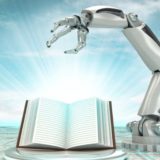Thinking control will become one impact of Artificial Intelligence on society
by Ready For AI · August 29, 2018
With the development of artificial intelligence, impact of artificial intelligence on society may lead to the transformation or control of human thinking.
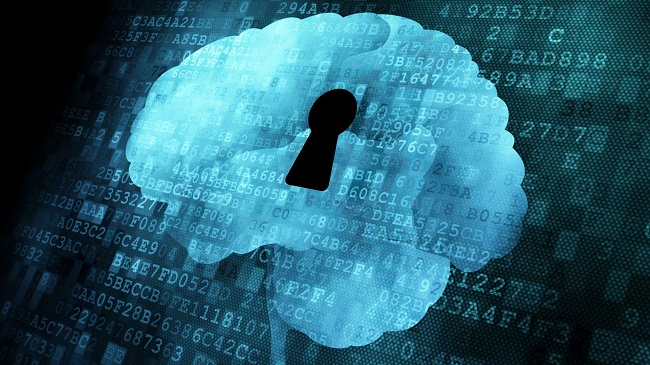
Algorithms will affect your thinking
Facebook changes the way information is accessed, Twitter manipulates the direction of public opinion, and Tinder influences our dating decisions. At first, the development of artificial intelligence was only to help us make better choices. Now, it slowly penetrates into the life of a little bit and changes all aspects of ours. As we increasingly rely on artificial intelligence algorithms, does human thinking also begin to mimic artificial intelligence algorithms? Will the risk of artificial intelligence become bigger and bigger?
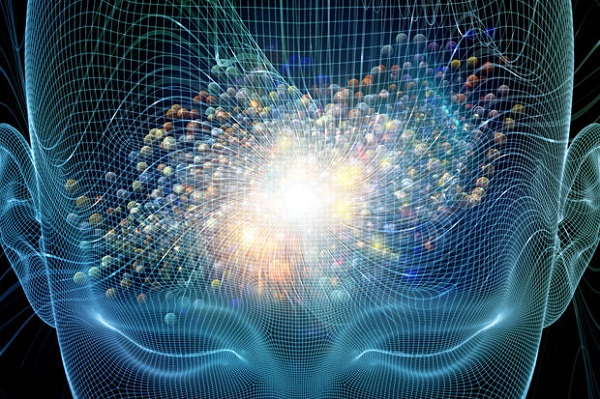
Faced with a variety of choices, such as merchandise, employees, information, etc., we had written artificial intelligence algorithms to be better, faster and easier to live in the world. Artificial intelligence algorithms help us understand complex problems with clear parameters and simple rules.
Artificial intelligence algorithms are our partners, helping us solve problems we encounter and optimize the way we make decisions. What is the best restaurant near the house? Google knows the answer. How do I get to my destination? The electronic map will navigate for you. What is the latest headline news of Trump? Facebook may or may not tell you the content you really need.
Example of algorithmic control thinking
Here are three artificial intelligence algorithms, and I will analyze how each algorithm affects people’s thinking or changes people’s behavior.
Product Comparison: From online shopping to offline dating
Amazon’s artificial intelligence algorithms allow people to browse products for more comparisons before making purchases. This artificial intelligence algorithm was originally used to improve the online shopping experience, and its impact is far more than that. Some applications draw on this artificial intelligence algorithm and apply it to other areas of life, such as dating apps. In a similar application, we can view the information of countless people, compare the advantages and disadvantages of each dating object, choose the dating object that meets your own criteria, or mark your favorite dating object for later use.
In the past, there was an infinite supply of products and services in the virtual world, and now it seems that people with unlimited supply have also been added. The supply of goods and services on the Internet is wide and infinite, and everyone can choose one that they are most satisfied with.
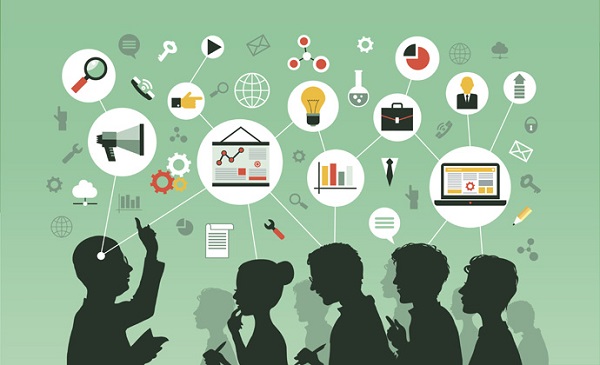
We usually all think that our needs are unique, and we can always be happy with the hope of finding something that fits perfectly with our ideas. Whether it’s online shopping or offline dating, we are constantly searching, evaluating and comparing. Driven by artificial intelligence algorithms or driven by web design and code, we are always browsing options as many as possible. In other words, the Internet has strengthened this idea.

Ellen Ullman
"An empty, illusory, tempting choice of the ocean brings happiness to people."
In general, our lives are mimicking the way we interact with the Internet. The artificial intelligence algorithm is a simple method that can save us from a chaotic life, entangled networks, and potential best matches. We can choose to use a clear artificial intelligence algorithm framework to deal with the problem, or directly Let the artificial intelligence algorithm make a choice for us, but this makes us have to adapt to artificial intelligence algorithms.
Quantitative scoring: evaluation and feedback
Like all other artificial intelligence algorithms, this artificial intelligence algorithm for scoring is also a personalized design. After receiving feedback, the company can better serve customers, recommend more targeted products, and provide more content that users may like based on historical preferences thus attracting users to continue blind consumption.
Almost all real-life interactions are rated on a scale of 1-5, the smaller the number means the lower the satisfaction. We have never been so concerned about our performance, what others think of us, and whether we have met the expectations of others. Suddenly, we have the power to quantify certain content, such as evaluate the design taste or cleanliness of the homeowner on Airbnb.
People’s enthusiasm for making such behavior is equally unbelievable. After the end of an Uber trip, you will quickly light up five stars in the system just to improve your passenger rating. In return, you will also get the car owner’s evaluation of you, and all this brings you great joy. Someone may think of the scene of the first episode of the third season of the TV series “Black Mirror”. In fact, we are not far from such a world: The scores replace all other things and become the meanings of our lives.

We are also in the process of interacting with others, and we constantly assess and optimize these interactions in a continuous cycle of self-improvement. Through artificial intelligence algorithms, our assessment of others can be converted to credit ratings and reviews. Popularity is equal to the number of praises on social media, and social status is the number of people who followed you. The artificial intelligence algorithm creates a Baurdrillardian Simulation in a sense, each scoring rule has completely replaced the reality, and even the digital comment is more realistic and meaningful than the actual life experience.

In the face of complex and chaotic real life, artificial intelligence algorithms help us manage to simplify. Artificial intelligence algorithms strip away the insecurities of social interactions and real-life opinion surveys and feedback, and bring them all into the rating system. But when we use programming languages, code, and artificial intelligence algorithms as part of our thinking, is humanity and artificial intelligence also integrated? We are accustomed to seeing AI as an external force, but the most immediate threat of artificial intelligence may not be that the robot directly rules the world, but rather controls our thinking to make our consciousness more integrated with them.
Language: Keywords and buzzwords
Google searches by keyword, and based on specific strategies makes certain websites the first few search results. This kind of product built around technology has now penetrated everything we do, including the way we write the title of the article or the language we use at work and in our daily lives.
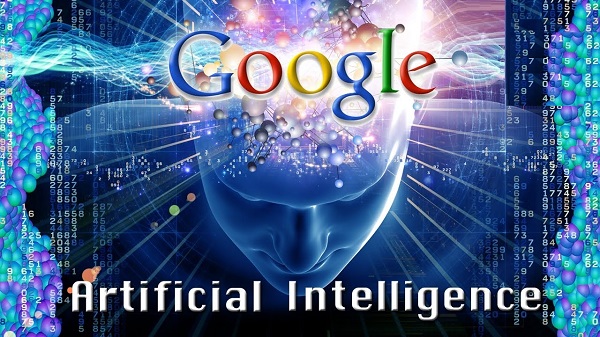
For example, media and entrepreneurship often use some hot words. After a quick look at some of the top startups, you’ll find that the best way to capture people’s attention and attract investors’ attention is to add “artificial intelligence,” “encryption,” or “blockchain” to the company profile.
In Pitch Deck, the more popular the keywords mentioned by entrepreneurs, the more likely it is that investors will invest some money. Similarly, headlines covering popular words are more likely to be clicked, so buzzwords are becoming more important than actual content, a lot of article content is completely inconsistent with the title is a good evidence.
Where is the future going?
Technology gives us a clear framework, and online shopping provides an easy way to browse through the rich options. Therefore, it seems that we don’t have to think more, just need to operate the choices assuming that the artificial intelligence algorithm knows the most about ourselves. We don’t need to fully understand the workings of artificial intelligence algorithms because the code is hidden and we can’t see it, artificial intelligence algorithms are just magical to present results and solutions.
We venture become users of machines and algorithms, and we don’t understand how these machines work. When it works normally, this uninformed situation doesn’t matter. But when it’s not working properly, we can’t do anything in the face of this product created by ourselves. Or you think what else can we do?
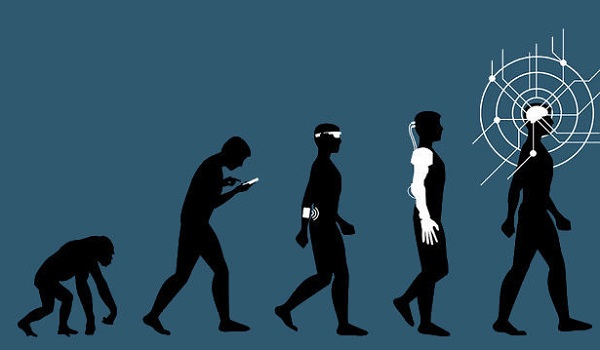
When we are in the distribution bubble of technology manufacturing, how do we perceive and predict society change when social media pushes mostly people who are similar to ours? Ultimately, one choice is the artificial intelligence algorithm lets us do what we do. Another choice is to question the status quo, analyze the facts and draw our own conclusions. But I believe there is no one has time to do this, we have become a gear on Facebook machines. We are more susceptible to the effect of propaganda, and still less aware of the impact of artificial intelligence algorithms on our thinking.
Conclusion
The artificial intelligence algorithms we trust and deeply embedded in our lives not only drive us to make private choices with greater force, but also invade our thinking process. Ultimately, artificial intelligence algorithms will prevail in shaping our future society form, unless we no longer act as users of algorithms, but as engineers who manipulate algorithms.


